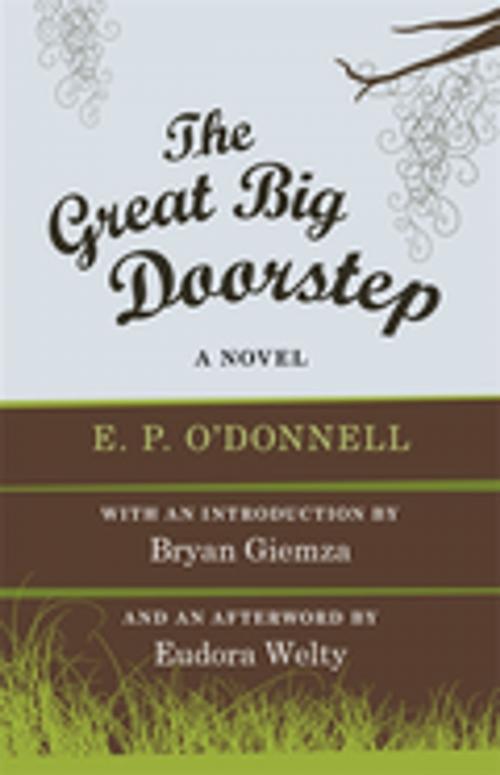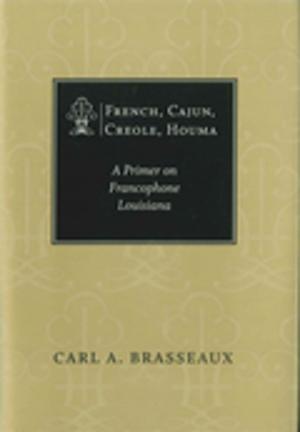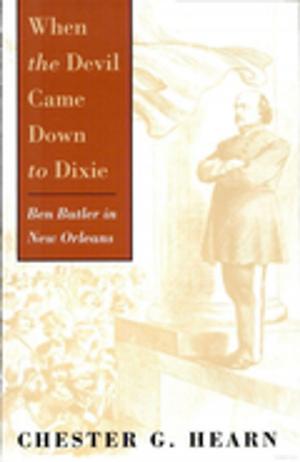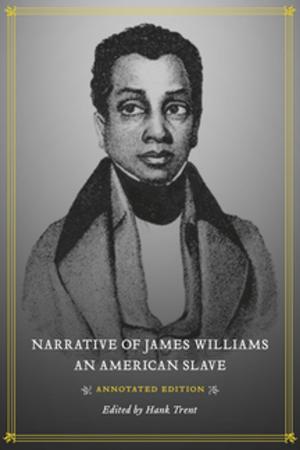| Author: | E. P. O'Donnell, Eudora Welty | ISBN: | 9780807160305 |
| Publisher: | LSU Press | Publication: | May 7, 2015 |
| Imprint: | LSU Press | Language: | English |
| Author: | E. P. O'Donnell, Eudora Welty |
| ISBN: | 9780807160305 |
| Publisher: | LSU Press |
| Publication: | May 7, 2015 |
| Imprint: | LSU Press |
| Language: | English |
A Depression-era comic masterpiece, E. P. O'Donnell's The Great Big Doorstep centers on the Crochets, a Cajun family who live in a ramshackle house between the levee and the Mississippi River. The Crochets dream of one day owning a stately plantation befitting the magnificent cypress doorstep they have salvaged from the river and proudly display outside their humble home.
The memorable characters in this novel have their own concerns: the patriarch, Commodo, is full of wild bravado as he fluctuates between scheming, laboring, and malingering; his wife reigns as the queen of retort, though toughened by years of making do and doing without. The Crochet children also cope with personal struggles: Topal, twenty, restless, and moody, and recently dumped by her fiancé; Arthur, eighteen, attempts to strike out on his own while dodging the coddling of his mother and the fury of his father; Evvie, almost fifteen, plans to join a religious order after renouncing a lover; and twins Gussie and Paul, and baby T. J., provide an ongoing chorus of laughter and tears.
The Great Big Doorstep has remained a literary and cultural classic since its publication in 1941. In an 1979 afterword, Eudora Welty praises O'Donnell's comic genius, citing his "supreme gift" for dialogue, while Bryan Giemza's introduction underscores the work's place in the tradition of comic Southern novels.
A Depression-era comic masterpiece, E. P. O'Donnell's The Great Big Doorstep centers on the Crochets, a Cajun family who live in a ramshackle house between the levee and the Mississippi River. The Crochets dream of one day owning a stately plantation befitting the magnificent cypress doorstep they have salvaged from the river and proudly display outside their humble home.
The memorable characters in this novel have their own concerns: the patriarch, Commodo, is full of wild bravado as he fluctuates between scheming, laboring, and malingering; his wife reigns as the queen of retort, though toughened by years of making do and doing without. The Crochet children also cope with personal struggles: Topal, twenty, restless, and moody, and recently dumped by her fiancé; Arthur, eighteen, attempts to strike out on his own while dodging the coddling of his mother and the fury of his father; Evvie, almost fifteen, plans to join a religious order after renouncing a lover; and twins Gussie and Paul, and baby T. J., provide an ongoing chorus of laughter and tears.
The Great Big Doorstep has remained a literary and cultural classic since its publication in 1941. In an 1979 afterword, Eudora Welty praises O'Donnell's comic genius, citing his "supreme gift" for dialogue, while Bryan Giemza's introduction underscores the work's place in the tradition of comic Southern novels.















